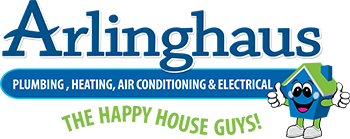The availability of information on the Internet about heating & air conditioning makes it seem like it ought to be really easy to do HVAC upkeep and maintenance on your own. The truth is, however, that most of it requires a professional eye.
There are many elements of your HVAC system that are quite unique to where you live in the US, different factors in your home and the way you use the equipment. Looking at examples online is informative, but it probably will not tell you everything you need for your unique system the way a professional can.
Region
It makes perfect sense that heating and cooling systems would be designed and installed according to particular climates: People who live in areas with cool summers may not need an air conditioner. Homeowners in warmer, humid regions need the benefit of heating & air conditioning that are able to remove moisture from the air.
That’s why the country is divided up into zones that guide professionals in estimating heating load, cooling load and insulation values. These zones help to determine what size of furnace, air conditioner or other heating and cooling units you would need to keep your home comfortable in a given region. However, just knowing these values is only one step in the process. Without professional guidance, you may not know how to figure in other factors like insulation or floor plan.
Installation
Even if you buy a top of the line unit, the way the system is installed can have as great an impact on its efficiency and lifespan as the quality of the machine itself. Experts estimate that as much as 30 percent of an HVAC’s energy efficiency can be cut by a poor installation. The trouble is that you may not be able to determine if the installation was done correctly.
If you can get access to your ductwork, it may not be difficult to spot gaps or kinks that indicate faulty installation or ductwork repair. Beyond that, you may have no idea that your air conditioner was placed incorrectly when the most common installation problems relate to improper sizing, inadequate airflow, ductwork and low refrigerant charge.
Age and Condition
When HVAC systems are installed correctly, they are designed to work as efficiently as possible for an indefinite period of time. The quality of the equipment, how it has been used and what upkeep has been performed all determine how long it can preserve such efficiency. If a system has regular attention from a homeowner and professional maintenance or repair once a year, it will last longer with greater output. However, even a well-maintained system will eventually need to be replaced, and that is what a professional HVAC consultation is for. Your entire system could be outdated, and you may not know that until a professional gets a chance to examine your home.
Home Dynamic
Have you ever been in a hotel room set to a horrible temperature? Living in a home with someone else’s HVAC system may feel the same way. You don’t want to be constantly trying to adjust for a system that does not apply to your situation. The number of people regularly in your home, as well as its age and size, all help to determine the kind of system that you need. If you bought an older home with an idea of adding a second floor, you will have to reconceive the HVAC system entirely. Even if the current system was installed only a few years before, you should have an HVAC technician look at the way you intend to use the home to determine if the equipment will continue to meet your needs.
Overall Usage
There are a lot of industry-specific standards that may or may not work for you and your family. For example, you have likely read recommendations from the U.S. Department of Energy that you should set your thermostat to 68 degrees while you are home and awake during the winter and 56 degrees while you are gone or at night. These temperature guidelines are set under the assumption that you have ideal insulation in your home and that all air leaks are properly sealed. If you do not, these temperature settings may be more uncomfortable for you than for other homeowners.
The same concept applies to your use of home automation technology, as well. Some people are early adopters, who purchase the latest appliance as soon as they can. There is a certain degree of risk in early adoption of smart technology given the fact that these products usually need time to work out the kinks. Your interest in home automation relates to your ability to purchase new equipment, learn to use it effectively and cope with any problems that come up with untested technology. You may envy your neighbor’s fully automated smart home, but you should ask a professional before deciding if it is right for you.
Investment and Future Plans
These days, people are all about efficient technology, with upgrades that are designed to cut your energy costs and last longer than other HVAC systems. Geothermal heating and cooling is a good example of this. However, the benefit of your investment has to be balanced against your expectations for the home. Major HVAC system upgrades cost thousands of dollars. If you plan to live in the same home for at least 10-15 years, you will probably recoup the investment in energy savings. However, if you are thinking of moving in the next few years, it may be best to find ways to maximize the performance of existing equipment. Whatever you choose, however, the worst thing you can do is to neglect your heating and cooling equipment. The last thing you want is a system that breaks down right before you plan to sell.
Heating & air conditioning is so subjective to you and your home that you cannot easily apply the information you find online to practical choices you make for your own HVAC equipment. With a better understanding of these unique aspects of HVAC systems, you and your HVAC technician can work together to select, install and maintain a system that is ideal for you.


